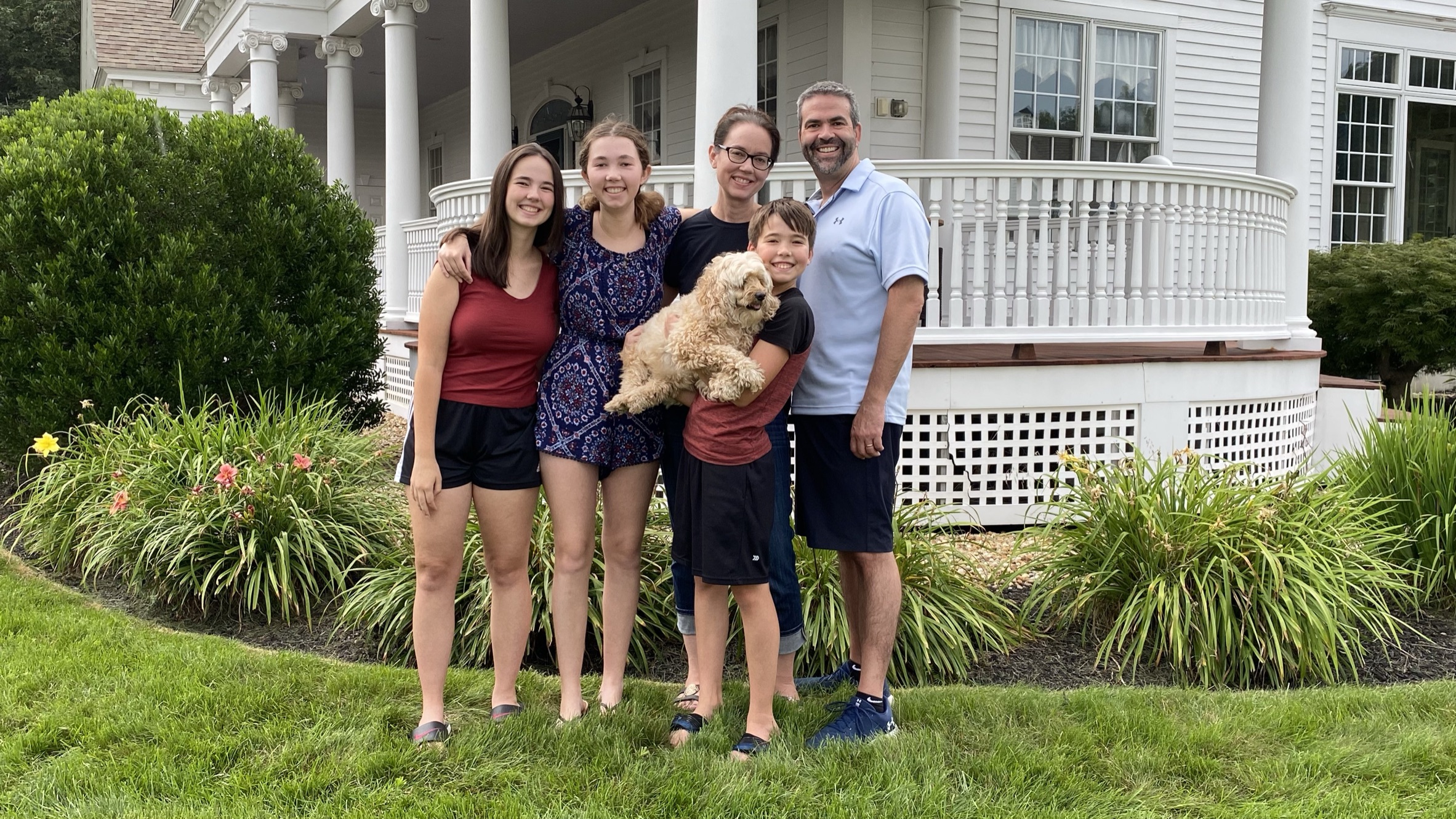By Patrick J. McNally. Reporter
Sterling resident Dr. John E. Harris is a world-renowned, board-certified dermatologist, Tenured professor, and Chair of the Department of Dermatology at UMass Medical School in Worcester.
As the founding director of both the Vitiligo Clinic and Research Center, and the Autoimmune Therapeutics Institute, he is a man on the move.
“My career goal is to reveal mechanisms of autoimmunity in the skin, develop new treatments using animal models, and translate these treatments to patients. We use basic, translational, and clinical research approaches as a strategy to better understand autoimmune pathogenesis, in particular the mechanisms that drive autoimmunity in the depigmenting skin disease, vitiligo,” he said.
Harris, 45, and his wife Melissa have been married for 24 years and have three children. He is passionate about his family, his work and the NIH-funded research he conducts in inflammatory skin diseases.
Vitiligo is an autoimmune disease, which causes white spots on the skin. It’s more visible the darker your skin is, but it affects light skin/dark skin equally. About 1 to 2% of the population worldwide has Vitiligo. About 50% of the people with Vitiligo start to experience it before the age of 20, Harris said, with it starting with people over 30 about 80 % of the time.
The bulk of his dermatology work takes place at Hahnemann Hospital in Worcester, mostly on an outpatient basis.
“We do surgeries there as well,” he said. “That’s the clinical operation.”
Harris also manages a large research lab, which is located at the university campus.
“Now is an incredibly exciting time,” he said. “We’ve done a lot of research over the past 10 years, and on the back of that research, there are new treatments coming. We have a phase 3 clinical trial that was just completed, and we’re going to get FDA approval for a new medicine – the first FDA approved drug, to properly treat vitiligo, since the Iron Age is now approximately a year away — super exciting.”
Patients from all over the world come to see Harris. He once had a patient fly in from Shang-Hai to Worcester for a 20-minute appointment.
Harris grew up in Baldwinville the fifth of five sons born to Jerry and Priscilla Harris.
“My parents worked hard. My dad worked a few jobs, owned a bowling alley, sold used cars, and my mom stayed home, took care of the kids,” he said.
As for himself, Harris was Valedictorian at Narragansett Regional High School.
“I was really good at math and science. I didn’t know that research still existed,” he said.
While hanging out with a family doctor in his youth, he said, he “got hooked” and decided to go to medical school.
“When in college, an older student, Don Gonzalez, informed me that you can do both – you can go to medical school and treat patients, and you can do research, which was fascinating to me. It’s called an MD-PhD Program, and Don convinced me to do that,” Harris said.
Harris attended Gordon College in Wenham from 1994 to 1998. And that is where he met his wife Melissa, a student from Chicago, who immediately caught his eye.
“She was an English Literature, Biology double major – part of what attracted me to her,” he said. “We had the biology shared interest, and she reads – she’s such a prolific reader. We’re a good team.”
They married young and moved to Worcester so John could attend Medical School at UMass. He enrolled in a combined program, MD and PhD together, which took seven years, followed by a one-year internship and year of residency. Next stop was Philadelphia for Dermatology training (four years), but they always wanted to come back home to Massachusetts. This was made possible in 2010, when Harris was hired as Assistant Professor in the Dermatology Division at UMass.
Life in research is not for everyone, and the road has not always been easy.
“Melissa has seen me through all of this and has been critical at major points to help me get through. She worked to put me through med school. I almost gave up science, as getting funding was impossible,” he said. “I had seven grant requests rejected, each one taking months to prepare. I came home, I said ‘I quit. I thought I was a scientist – I guess I’m not.’ And she said, ‘You have to keep trying. If you weren’t doing science, you’d be miserable.’ And she was right. She’s been with me the whole way.”
Persistence has been the key and it paid off, Harris received funding on his eighth grant submission, which set him on the path he is blazing today, he said.
In addition to his current roles he recently formed a new company, Nira Biosciences, Inc.
“We’re not focused on vitiligo, but it is focused on inflammatory skin diseases,” he said.
He also founded Aldena Therapeutics, which is “also focused on inflammatory skin diseases, not necessarily vitiligo.
Harris was also recently tasked by the Dean and Chancellor of UMass with the opportunity to build an Institute for Autoimmunity, which would allow him to recruit other physicians and scientists from various fields.
“The whole idea is to take everything we’ve done with vitiligo and use that knowledge to cure other diseases as well,” he said.
In addition to his professional accomplishments, Harris is most proud of his marriage and his three children – Abby 16, Naomi 14, and John 11.
“We love Sterling. I think we’re going to live and die here. But I’m also excited about the changes in Worcester, especially in biotech. The next 20 years are going to be amazing,” he said.
COURTESY: Dr. John Harris

